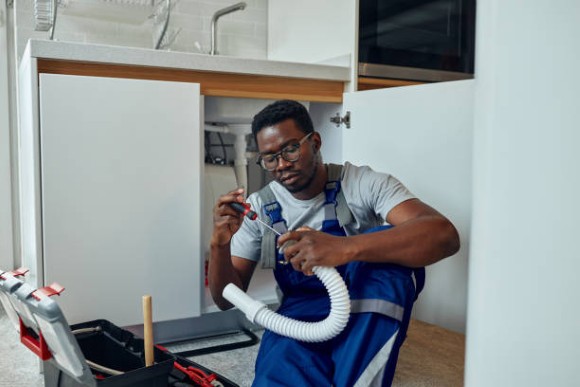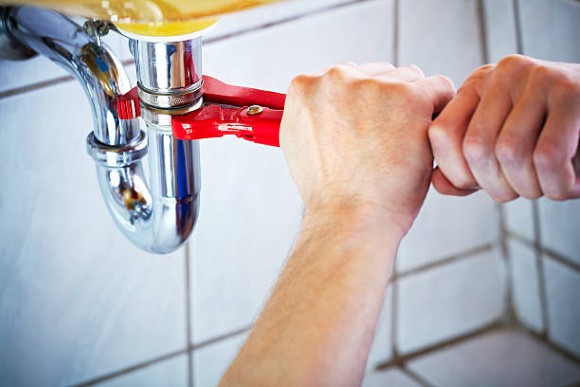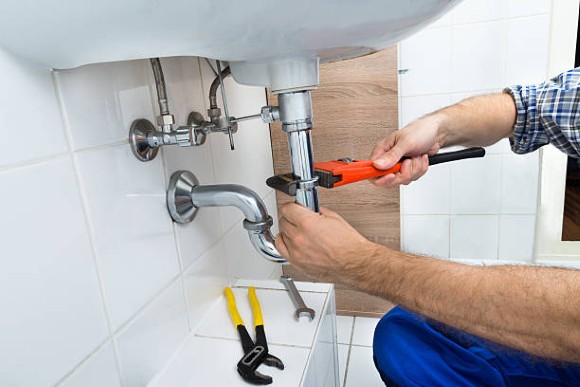|
If you're looking for a career that's sure to get the job done, plumbing might be the perfect choice for you. As plumbers, your job is to provide high-quality plumbing services to both residential and commercial clients. But before you can become a plumber, you need to learn about the program and what is required in order to become certified. This blog post explains what you need to know about the plumber training program and the qualifications you need to become one. We'll also provide you with tips on how to find the best plumber training program for you, and answer any of your questions about becoming a plumber. What is a Plumber?A plumber is a professional who repairs, installs, maintains, and troubleshoots plumbing systems. They work in residential and commercial settings to provide quality service to their clients. In addition, plumbers are always looking to learn new skills and improve their trade, so they are always looking for ways to improve. What Are the Qualifications Required To Become a Plumber?Becoming a plumber is a great career choice, but it's not easy. First and foremost, plumbers must pass a criminal background check and meet other employment standards set by law. These qualifications can vary depending on the state, but generally, they include an associate's degree or diploma in plumbing technology or engineering. In order to become a plumber, you also need experience and certification courses. Also, plumbers need to be able to work in high-pressure environments and use the right tools. If you're interested in this career, make sure to research the qualifications required in your state, and then get started training and working towards meeting those standards. How Much Does It Cost To Become a Plumber?Plumbers have the opportunity to earn high wages and work in a variety of settings. If you're interested in the career, the first step is to gain the necessary qualifications. As a journeyman plumber or engineer, you may advance to becoming a certified professional plumber (CPR). The process of becoming a plumber can be expensive, but it's well worth it if you want to work in a high-demand field. The cost of tuition and associated fees varies depending on the program you choose. Do I Need Work Experience to Become A Plumber?Plumbing is a highly-skilled trade that requires a lot of training and experience. Fortunately, there are many different ways to become a plumber, including apprenticeship programs and vocational schools. Most states require a certain level of education and/or experience before issuing a license to practice plumbing. Be sure to research the various types of plumbing licenses available in your state before making a decision. If you have experience working with water, installing pipes, or repairing leaks, you're ready to start your career as a plumber. How Long Does It Take To Complete the Plumber Training Program?Plumbing is an excellent career choice for those who have an interest in plumbing and water systems. The plumber training program can take anywhere from 6 to 12 months, depending on the school you choose. After completing the program, you'll need to pass a licensing exam. Once you've achieved this, you can start working as a plumber and advance through the ranks based on your skills and experience. So, if the plumbing is something you're interested in, now is the time to get started. The best way to get started is to find a school that meets your specific requirements and check the program length and requirements online. ConclusionBecoming a plumber is a challenging and lucrative career choice. However, it isn't easy to achieve. In this guide, we have covered everything you need to know to become a plumber, from the cost of the program to the qualifications you need. Make sure to read through the guide carefully and check the relevant boxes on the right to apply today.
1 Comment
A plumbing technician is a tradesperson who installs and maintains piping systems used for water, sewage, and drainage. As a plumbing technician, you will work with both residential and commercial customers to ensure that their plumbing systems are functioning properly. In order to become a plumbing technician, you will need to follow some specific steps. Thus, we are here to guide you through those steps so that you can pursue your career as a plumbing technician: Tips for Becoming a Plumbing TechnicianPlumbers are an essential part of any building team, as they ensure that the water supply and drainage systems are functioning properly. In addition to new construction, plumbers also work on repairing and maintaining existing piping systems. Because of the nature of their work, plumbers must be highly skilled in both technical and practical skills. Here are some tips that can help you become a plumbing technician: 1. Pursue an education in plumbingBecoming a plumbing technician requires both on-the-job training and formal education. Many plumbers get their start by completing an apprenticeship, which typically lasts four to five years. During an apprenticeship, plumbers learn the trade through a combination of classroom instruction and hands-on experience. In addition to completing an apprenticeship, many plumbers also pursue formal education by completing a certificate or associate degree program in plumbing technology. These programs typically last one to two years and provide students with the opportunity to learn about plumbing theory and systems. Pursuing an education in plumbing can help you develop the skills and knowledge necessary to succeed in this challenging field. 2. Get experience in the fieldNow that you have completed your education in plumbing, it is time to get some experience under your belt. The best way to do this is to find an entry-level position with a reputable plumbing company. While you may not be performing the most complex tasks at first, you will gain valuable experience that will serve you well in your career. You will also have the opportunity to learn from more experienced plumbers and develop your skills. In addition, working in the field will give you a better understanding of the industry and help you to build relationships with other professionals. With a little hard work and dedication, you can make the transition from a student to a plumbing technician. 3. Get certifiedNow that you have some experience under your belt, it’s time to get certified. Certification shows employers that you have the skills and knowledge necessary to do the job right. In addition, many states require plumbers to be licensed, so this is a good way to get ahead of the competition. There are a few different ways to become certified. You can attend a trade school or program that offers certification or you can take an exam administered by a professional organization like the National Institute for Plumbing and Heating Engineering (NIPHE). ConclusionWe hope that this article was helpful in guiding you through the process of becoming a plumbing technician. As we mentioned before, plumbing is a vital trade that is essential in both residential and commercial buildings. In order to be a successful plumbing technician, you need to have both technical skills and practical experience. Just remember, whichever route you choose, make sure you put in the effort to study and prepare for the exams. With a little hard work, you can become a skilled plumbing technician and launch a successful career in this challenging field. Thanks for reading.
Starting a plumbing business can be expensive, and many people don't have the money to get started. It can be tough to break into the plumbing business because you need experience and licensing, which can be expensive. We're here to help. With our guide, you'll learn how to start a plumbing business on a shoestring budget without breaking the bank. So what are you waiting for? Why Start a Plumbing BusinessThere are many reasons to start a plumbing business. For one, the demand for plumbing services is always high. Homes and businesses need plumbing for both new construction and maintenance, and there is always a need for repairs. In addition, starting a plumbing business gives you the opportunity to be your own boss and set your own schedule. If you wish to discover effective information about plumbing, you have to browse around https://plumbingtechie.com site. You can also choose to work independently or hire employees, giving you a great deal of flexibility. Additionally, plumbing is a skilled trade that requires training and experience, so you can be sure that you’re offering a valuable service. If you’re looking for a challenging and rewarding business venture, starting a plumbing business is a great option. How to Get StartedWhile plumbing is an essential trade, it can be an expensive business to start up. Between the cost of licensing, insurance, and tools, there are a lot of upfront expenses. However, it is possible to start a plumbing business on a shoestring budget. The following tips will help you get started without spending too much money: 1. Get licensed and insuredBefore you can start your plumbing business, you'll need to get licensed and insured. This will protect you and your customers in the event of any accidents or damages. The process of getting licensed and insured can vary depending on your state and country, but it typically involves passing an exam and paying a fee. You can find out more by contacting your local licensing board. 2. Find the right tools and suppliesOnce you're licensed and insured, you'll need to stock up on the right tools and supplies. This doesn't have to be expensive - you can often find secondhand tools at garage sales or online classifieds. Just make sure that the tools you choose are in good condition and appropriate for the job. You'll also need a reliable vehicle to transport your supplies, so consider investing in a used van or truck. 3. Get the word outThe next step is to start marketing your business. This can be as simple as putting up flyers in local businesses or handing out business cards. You can also create a website or social media pages to reach a wider audience. To get the word out, think about what makes your business unique and use that to market your services. For example, if you're the only plumbing business in your town, make sure to mention that in your marketing materials. 4. Build a reputationFinally, it's important to focus on building a good reputation. This means always providing quality service and being professional with your customers. If you can do this, you'll soon develop a loyal customer base that will help your business grow. To sum it up, if you're looking to start a plumbing business, these are some of the most important things to keep in mind. By following these tips, you'll be well on your way to success. ConclusionOnce you have learned how to start a plumbing business, you will be well on your way to becoming a successful entrepreneur. Just remember to always stay focused, organized, and motivated, and you'll be sure to succeed. If you keep these things in mind, you'll be running your own plumbing business in no time. Thanks for reading. |



 RSS Feed
RSS Feed
